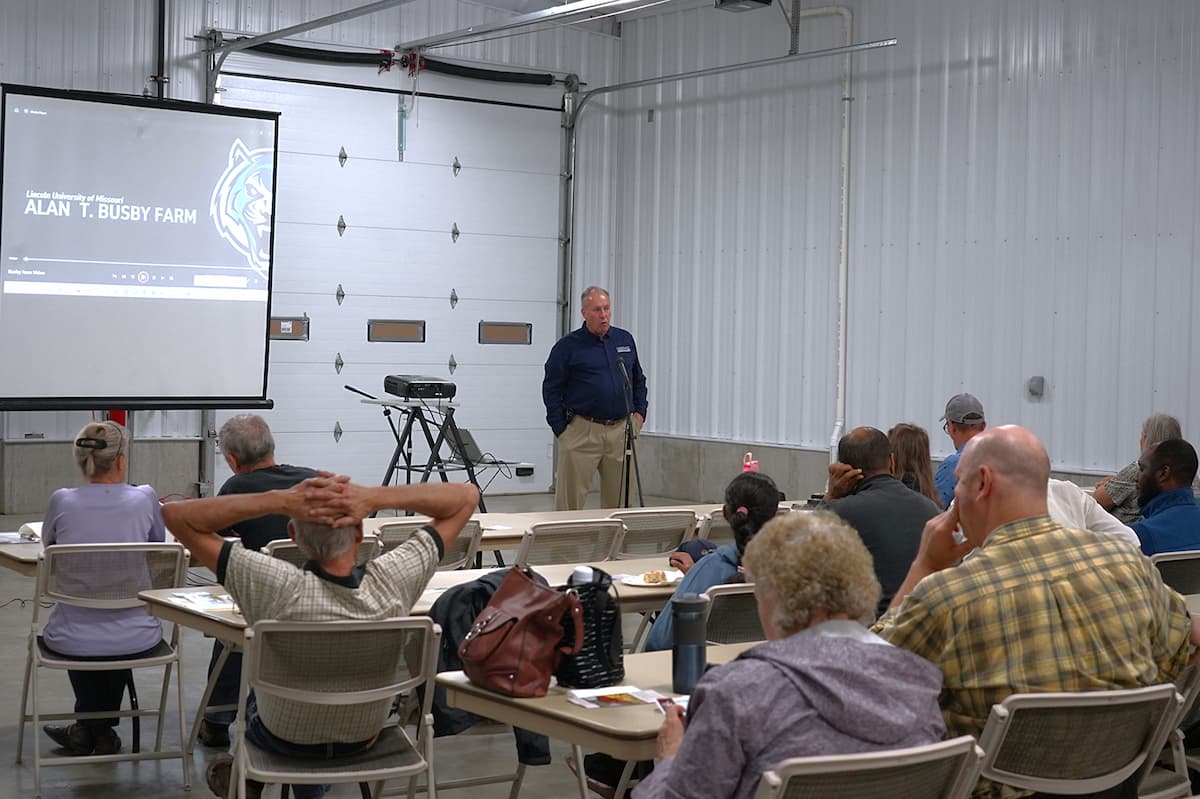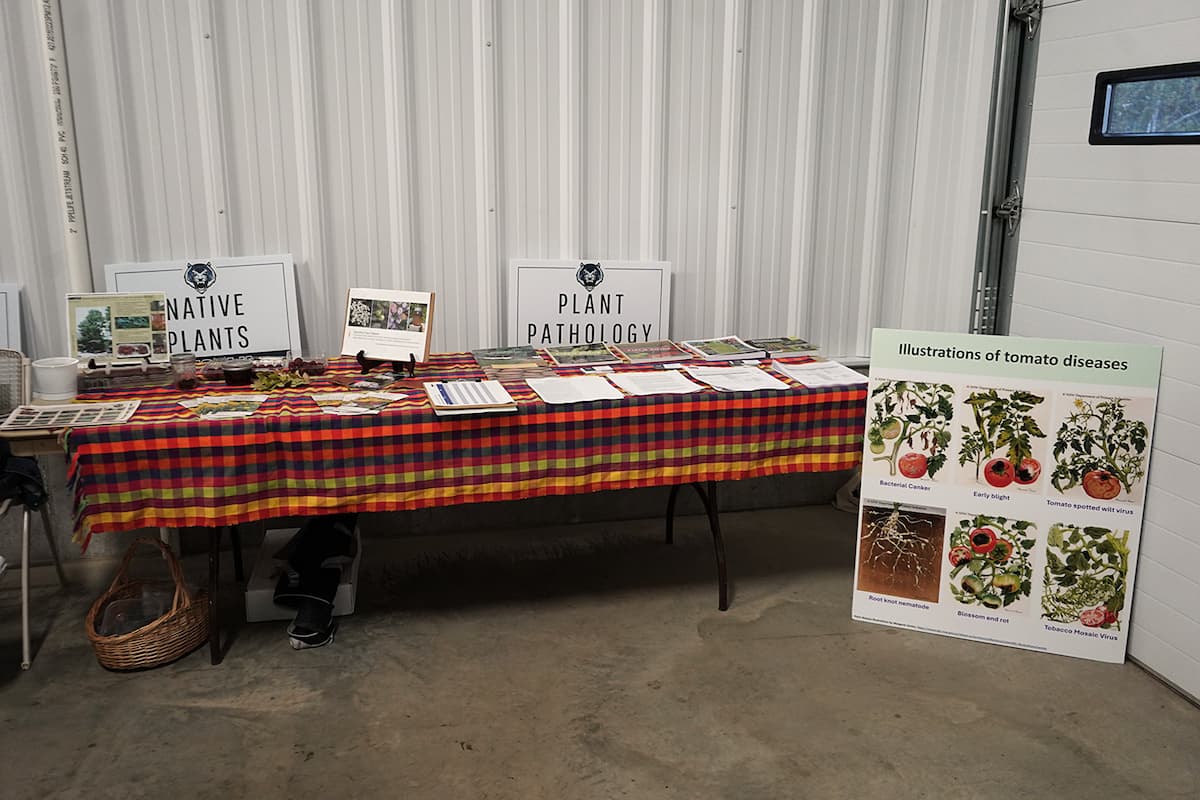Busby Field Day Highlights Organic Farming at Lincoln University
Office of Communications and Marketing
Young Hall
820 Chestnut Street
Jefferson City, MO 65101
 Chris Boeckmann welcomes guests to Busby Field Day.
Chris Boeckmann welcomes guests to Busby Field Day.
Despite rainy weather and late-season timing, Lincoln University of Missouri (LU) partnered with the Missouri Organic Association (MOA) to host its first Busby Field Day on Oct. 18 at LU’s Alan T. Busby Farm — the university’s fully certified organic research farm.
The 2025 event marked the first collaboration between LU and MOA and the first field day at Busby Farm since before the COVID-19 pandemic, ending a five-year hiatus. Organizers hope to turn the event into an annual tradition, ideally scheduled earlier in the fall harvest season.
Before its conversion to organic production, Busby Farm served as grazing land for livestock and a source of hay revenue, while also supporting aquaculture research. The shift to organic practices began during the tenure of Dr. Steve Meredith, former dean of LU’s College of Agriculture, Environmental and Human Sciences. The move was initially met with resistance, as many employees in the college did not understand why he wanted the farm to go organic. Meredith’s goal wasn’t to compare organic and conventional methods but to use the farm as a hands-on resource to help organic producers improve their operations — a mission still guiding the farm today.
“To the best of my knowledge, there are no other universities that have an entire farm committed to organic production,” said Chris Boeckmann, superintendent of farms at LU.
He said this distinction makes Lincoln a valuable resource for organic producers statewide.
 A table set up at the field day event, featuring brochures from different programs at Lincoln, including plant pathology and native plants.
A table set up at the field day event, featuring brochures from different programs at Lincoln, including plant pathology and native plants.
Boeckmann, who farmed conventionally for 25 years, explained how his philosophy had to change in order to transition to organic production.
“It’s a completely different mindset,” he said. “You can no longer reach for the antibiotic or the jug of Roundup. To be a successful organic producer, you have to understand holistic management.” He added organic farming demands creative, natural solutions, such as using livestock to graze out weeds.
MOA’s involvement in the field day stemmed from a desire to strengthen connections with Missouri’s organic community. “What we’re hoping to accomplish is to bring more awareness to organics in general — what’s being done behind the scenes with research,” said MOA representative Grace Ames. “We also want to make people more aware of both Busby and MOA. This was the perfect location.”
The field day also served as a bridge between Lincoln researchers and local producers. Faculty members such as Dr. Albert Kwarteng and Dr. Chandan Shilpakar used the event to ask farmers how their research could better meet regional needs. Boeckmann said this kind of dialogue — linking research to real-world application — is key to the event’s success.
Event coordinators expected approximately 70 participants, though weather conditions reduced turnout. Still, participants engaged enthusiastically. Among them were Allan and Ita Sherry of Hermann, Missouri — who raise chickens, sheep and chestnuts on their property.
“We’re not certified organic; we just don’t want to spray anything we don’t have to,” they said. “This has been fascinating — this is what we’ve been looking for: ways to help us understand our environment better.”
Boeckmann said the university hopes feedback from the first collaborative field day will guide future efforts, with attendees answering the questions, “What should we be doing?” and “Are we on target?”
If attendance and conversation are any indication, the event planted the seeds for a lasting partnership between Lincoln University, MOA and Missouri’s growing community of organic farmers.
To find out more about Busby Farm, contact Chris Boeckmann at BoeckmannC@LincolnU.edu.
